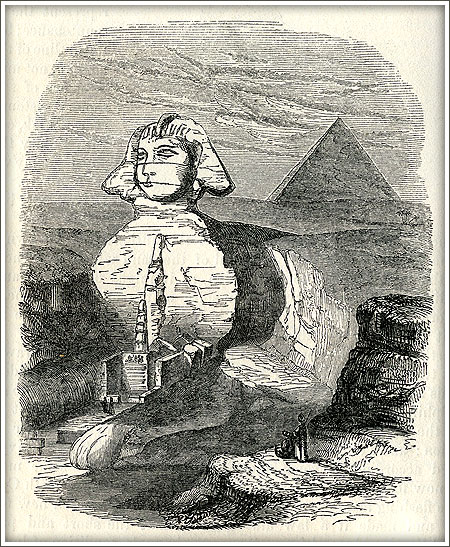Under the proposed law, backed by Supreme Council of Antiquities chief Zahi Hawass, persons around the world would be forbidden to  make copies, even for private use, of the country’s famous monuments, scarabs and other Pharaonic survivals. “His comments came only a few days after an Egyptian opposition newspaper, Al-Wafd, published a report complaining that many more tourists each year travelled to the pyramid-shaped Luxor hotel in Las Vegas than to Luxor itself. The newspaper proposed that the US hotel should pay some of its profits to Luxor city.” However, Hawass said that copies of pyramids and other objects that were less than “exact” might escape a royalty obligation, which might get the back of the U.S. one dollar bill off the hook. (Rory McCarthy, “Egypt to copyright the pyramids and antiquities”, Guardian, Dec. 27; “Egypt to copyright pyramids”, AFP/Google, Dec. 26; AP/IHT). More: Coleman.
make copies, even for private use, of the country’s famous monuments, scarabs and other Pharaonic survivals. “His comments came only a few days after an Egyptian opposition newspaper, Al-Wafd, published a report complaining that many more tourists each year travelled to the pyramid-shaped Luxor hotel in Las Vegas than to Luxor itself. The newspaper proposed that the US hotel should pay some of its profits to Luxor city.” However, Hawass said that copies of pyramids and other objects that were less than “exact” might escape a royalty obligation, which might get the back of the U.S. one dollar bill off the hook. (Rory McCarthy, “Egypt to copyright the pyramids and antiquities”, Guardian, Dec. 27; “Egypt to copyright pyramids”, AFP/Google, Dec. 26; AP/IHT). More: Coleman.

5 Comments
Not a lawyer but had a couple questions. Would this even be a copyright? I would think a copyright has to be applied for by the originator and that might be a little difficult in this case. Also doesn’t a copyright only cover a certain amount of time? Considering that these two monuments have been in the public domain for a couple thousand years how would a copyright work? Egypt could pass a law stating it was owed royalties for duplications but I don’t see this as a copyright, just a law, and such only enforceable with Egypt.
I would think the first step to encouraging tourism would be to provide better security for visitors. That makes more sense as a direct incentive!
“Good luck with that.”
The US has a similar law.
Did you know that the US Olympic Committee has the exclusive right to the word “Olympic”?
So says Congress: See 36 USC § 220506
http://www.law.cornell.edu/uscode/html/uscode36/usc_sec_36_00220506—-000-.html
So says the US Supreme Court in S.F. Arts & Athletics, Inc. v. USOC, 483 U.S. 522 (1987).
http://supreme.justia.com/us/483/522/case.html
VMS: The US Olympics Committee’s rights to “Olympic” are as a trademark, not a copyright. Copyright is protected for a limited time (at least in theory). Trademarks are protected for as long as the originator still uses them – but the trademark protection is far more limited in scope, essentially to the branding of merchandise. E.g., as long as Disney keeps using “Mickey Mouse” as a label for items it sells, it will keep the trademark active, but while that prevents the selling of Mickey Mouse merchandise by others, and maybe the use of the character in new cartoons by others, it takes copyright to prevent the copying of Disney’s old Mickey Mouse cartoons. (Thus, every twenty years or so, Disney has had to rush around buying Congressmen to get that “limited time” extended…)
Neither copyright law nor trademark law (at least in versions similar to the American laws) will provide what the Egyptian government seems to want. Copyrights have expired for everything older than the late 1920’s, and the pyramid design was out of copyright millenia before the first copyright law was written. Not only is it dubious that a generic pyramid shape could be unique enough to be claimed as a trademark, but even if the courts granted Egypt such a trademark, it would only prevent the use of the pyramid where it would be likely to mislead consumers – it doesn’t give them royalty rights to replicas of the great pyramid. Even the Luxor should be safe as long as it’s customers are aware that it’s fake, like everything in Las Vegas.